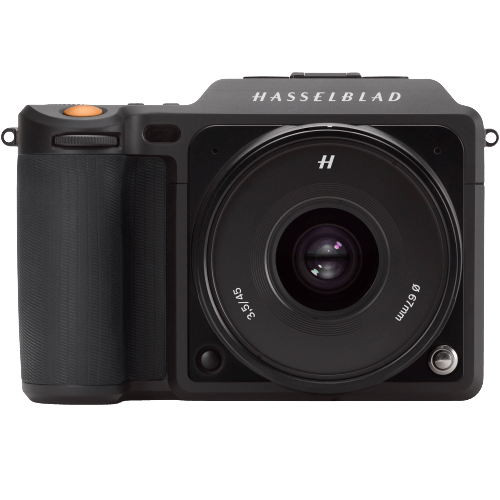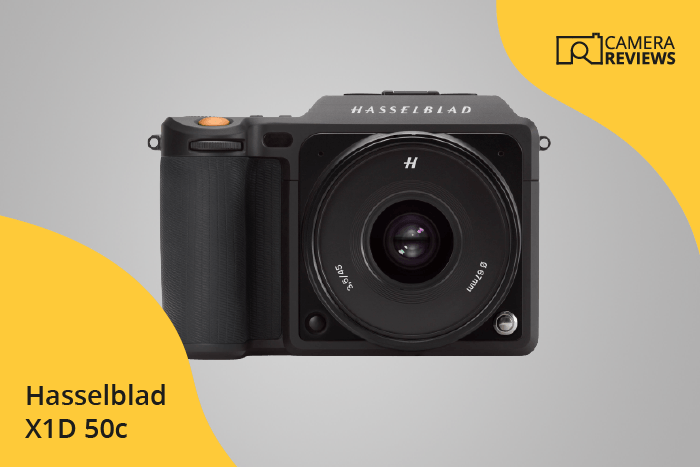Hasselblad X1D 50c Specs and Scores

The Hasselblad X1D 50c earns a score of 71/100. This mirrorless camera was announced on June 22, 2016, and released the same year with a launch price of $8,995. Measuring 150 x 98 x 71mm and weighing 725g (1.60lbs), the X1D 50c stands out in today’s market with its compact size and lightweight design. Despite its age, this high-quality camera remains competitive among newer models.
Hasselblad X1D 50c Overview and Optics
The optics of the Hasselblad X1D 50c receive a score of 74/100. This camera features a 50-megapixel CMOS sensor with a medium format size, ensuring high-quality image capture. The Hasselblad processor contributes to its superior performance, while the DXOMARK score of 102 for the sensor showcases its impressive capabilities.
With a shooting speed of 2.3, the X1D 50c may not be the fastest camera on the market, but its Hasselblad X lens mount allows for a wide range of high-quality lenses. However, the lack of image stabilization could be a drawback for some users. The 4:3 aspect ratio is a standard format, making it suitable for various photography needs.
The Hasselblad X1D 50c’s optics are competitive in today’s market, offering quality and versatility. While it may not be the top choice for those seeking speed or image stabilization, its impressive sensor and lens options make it a strong contender for photographers looking for high-quality image capture.
Hasselblad X1D 50c Video Performance
The Hasselblad X1D 50c has a video score of 43 out of 100. With a maximum video resolution of Full HD (1920 x 1080) and a maximum video frame rate of 25fps, the camera’s video capabilities are limited compared to other cameras in the market. The lack of built-in time-lapse functionality further reduces its appeal to videographers.
In today’s market, many cameras offer 4K video resolution and higher frame rates, making the Hasselblad X1D 50c’s video capabilities appear outdated. However, it is essential to remember that the camera’s primary focus is on photography rather than videography.
The Hasselblad X1D 50c may not be the ideal choice for those looking for advanced video capabilities. Its video specifications are modest and may not meet the demands of professionals or enthusiasts seeking high-quality video performance.
Hasselblad X1D 50c Features and Benefits
The Hasselblad X1D 50c’s features earn a score of 68 out of 100. With a 3-inch touchscreen display, users can navigate the camera with ease. However, the screen resolution is 920,000 dots, which may not be the sharpest available in the market. The absence of a flip screen also limits flexibility in shooting angles.
In terms of connectivity, the X1D 50c offers both GPS and WiFi, making it convenient for photographers to geotag their images and transfer files wirelessly. However, the lack of Bluetooth may be a drawback for some users who prefer this method of connection.
Taking these specifications into account, the Hasselblad X1D 50c has a decent set of features, but there is room for improvement to compete with other high-end cameras in today’s market.
Hasselblad X1D 50c Storage and Battery
The storage and battery section of the Hasselblad X1D 50c receives a score of 49/100. The camera offers two memory card slots, accepting SD, SDHC, and SDXC cards for versatile storage options. However, its battery life is limited to 250 shots per charge, which may be insufficient for extended shooting sessions. The X1D-50c battery type does not support USB charging, which could be an inconvenience for some users.
Comparing these specifications to other cameras in today’s market, the Hasselblad X1D 50c falls short in terms of battery life and charging options. Therefore, potential buyers should consider their specific needs and usage patterns before purchasing this camera.
Hasselblad X1D 50c Alternatives
Do you want to know how the Hasselblad X1D 50c compares to its competitors? Have a look at the most popular comparisons for this camera below:
- Fujifilm GFX100S vs Hasselblad X1D 50c
- Canon EOS Rebel T7i / 800D vs Hasselblad X1D 50c
- Fujifilm X-T30 vs Hasselblad X1D 50c
- Hasselblad X1D 50c vs X1D II 50c
- Hasselblad X1D 50c vs Nikon Coolpix P1000
- Hasselblad X1D 50c vs Nikon D850
Hasselblad X1D 50c FAQ
Does the Hasselblad X1D 50c Have Built-in Image Stabilization?
The Hasselblad X1D 50c does not have built-in image stabilization. Users may need to rely on a tripod or lenses with built-in stabilization for steady shots.
Does the Hasselblad X1D 50c Support 4K Video Recording?
The Hasselblad X1D 50c does not support 4K video recording. Its maximum video resolution is Full HD (1920×1080) at 25 frames per second.
What Size Sensor Does The Hasselblad X1D 50c Have?
The Hasselblad X1D 50c features a medium format 50-megapixel CMOS sensor, which offers exceptional image quality and detail compared to smaller sensors.
Does the Hasselblad X1D 50c Have a Dual Memory Card Slot?
Yes, the Hasselblad X1D 50c is equipped with dual memory card slots, allowing users to have ample storage and backup options for their images.
Does the Hasselblad X1D 50c Have a Touch Screen?
Yes, the Hasselblad X1D 50c features a 3-inch touch screen with an intuitive user interface, making it easy to navigate menus and adjust settings.
Does the Hasselblad X1D 50c Have Wi-Fi and Bluetooth?
The Hasselblad X1D 50c has built-in Wi-Fi for wireless image transfer and remote control, but it does not have Bluetooth connectivity.
Does the Hasselblad X1D 50c Have GPS?
Yes, the Hasselblad X1D 50c has a built-in GPS module, allowing users to geotag their images and track their shooting locations.
Is the Hasselblad X1D 50c Weather Sealed?
Yes, the Hasselblad X1D 50c is weather-sealed, providing protection against dust and moisture, making it suitable for use in various shooting environments.
Does the Hasselblad X1D 50c Have a Built-in Flash?
No, the Hasselblad X1D 50c does not have a built-in flash. Users will need to use an external flash or other lighting equipment for low light photography.

